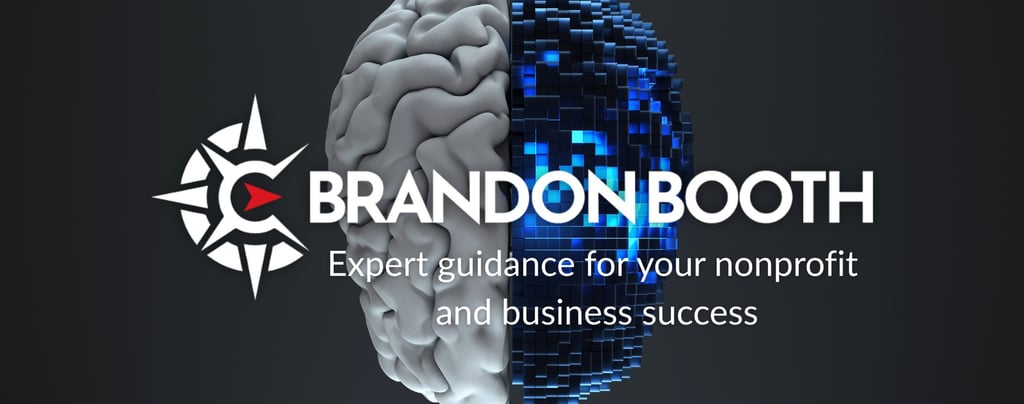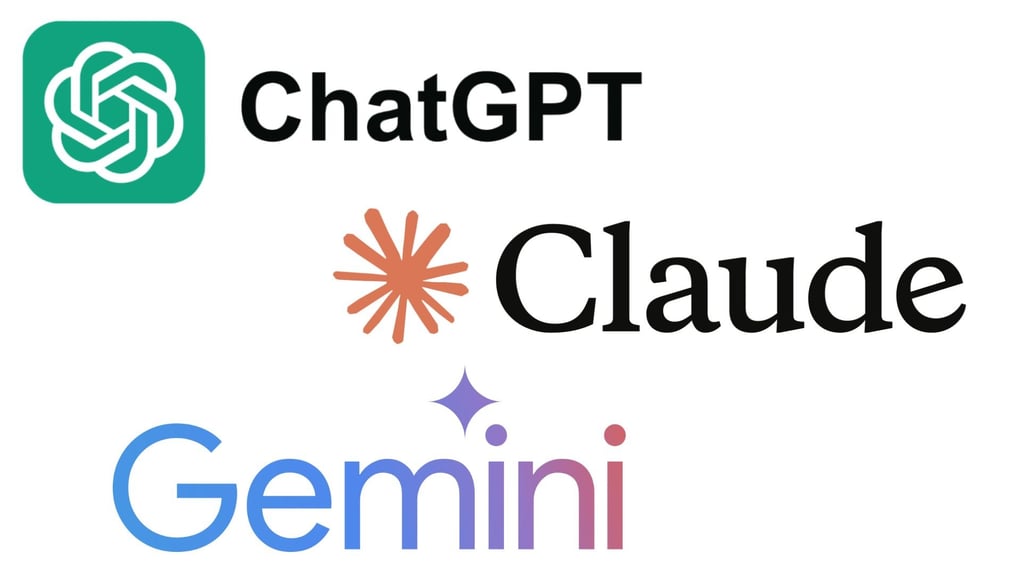AI in Ministry: Friend or Foe?
Brandon Booth
5/19/20256 min read
Never miss a post! Signup for my email updates today and get expert guidance delivered directly to your inbox!
The term "Artificial Intelligence" sounds like something straight out of a sci-fi movie, doesn't it? And in those movies, things never go well! So using AI might sound like inviting a malevolent, robot overlord into your life.
And the internet “hype” doesn’t help! Scroll your feed for five seconds and you’ll find people worried that AI is going to take over the world, or come for us in our sleep. Or, more likely, you’ll just be confronted with a never-ending spew of creepy AI generated images.
Take a deep breath. I get it. AI feels scary. But when understood and used wisely, it can be an incredible asset for your ministry.
First, Let's Clear Up What AI Isn't
The name "Artificial Intelligence" is, frankly, a bit of a misnomer. It conjures up images of a thinking, feeling, self-aware entity. But that kind of AI doesn't exist, and many serious thinkers doubt that it ever will. AI cannot think, it doesn't have a sense of self, and it's not making conscious choices.
If we wanted to be super nerdy (which, you know, I sometimes enjoy), instead of AI, we might call it "Advanced Statistical Prediction Algorithms." But ASPA just doesn’t quite roll off the tongue—and it certainly doesn’t have the marketing potential! But my point is that while these systems are incredibly sophisticated at recognizing patterns and creatively predicting what comes next based on massive amounts of data they've been trained on, they aren’t conscious, creative, agents in any sense of the word.
So, while the internet hype worries about SkyNet, the real ethical issues concerning AI have more to do with “boring” things like copyright law, big data mining, and the dissemination of false information (which is already flooding the internet thanks to normal old humans).
So, What Is This AI Thing We're Talking About?
For our purposes, we’re talking about "narrow" or "weak" AI (which is the only kind that exists). This isn't the all-knowing AI of fiction; it's AI designed for specific tasks. And you're already using it! That auto-complete on your phone? The spam filter in your email? The way Netflix uncannily knows you want to watch another documentary about competitive cheese rolling? That's AI at work.
Even more specifically we’re talking about "generative" AI like ChatGPT, though there are many others. These are the tools that can create new content — text, images, code, and more — based on the prompts you give them. This is where things get really interesting for ministries.


How Can AI Actually Help Your Ministry?
The absolute best way to understand AI's potential is to experiment. But here's a crucial paradigm shift: don't think of AI as a search engine.
Don’t just ask specific questions. Instead, think of it as a smart, fast, and endlessly patient co-worker. AI is not a person, but it really helps to talk to it like it is. Think of it as a sounding board to bounce ideas off, or a tech-savvy intern who can do a lot of the heavy lifting, or a research assistant who can help you see things from new perspectives.
Here are some examples of what I mean. These are just a few ways I've used AI to great effect:
A Brainstorming Buddy & Writing Partner:
Staring at a blank page for next week's newsletter or blog post? AI can be a fantastic starting point. But please, hear me on this: don't use it to write for you. Use it to help you write. Here’s how:
Draft your content, then feed it to an AI and ask for a high-level critique. I’ve found this kind of prompt to be very helpful: “Here’s a draft of my article, critique it from a high level, don’t rewrite it for me. How can I make it more clear, concise, and engaging?” Then you can work section by section: “Here’s my new draft, can you suggest three vivid metaphors that would help me make my introduction more vibrant and attention-grabbing?”
Need inspiration? Ask AI to generate a large list of ideas around a theme. A prompt like: “Please create a huge list of creative metaphors that would help a reader understand [concept]. Think outside the box and make connections across many different domains of knowledge.”
A Helpful Research Assistant:
Want to understand the nuances of strategic marketing for nonprofits? Or explore different theological perspectives on a complex issue? AI can synthesize vast amounts of information and present it to you in an understandable way. I've personally used it to get up to speed on topics that would have taken me weeks of traditional research.
For example, you could prompt an AI model: “What are the important assumptions, foundational concepts, and key steps in creating a really effective marketing funnel?” Or “Explain what a SWOT analysis is and when and how to most effectively use one in my ministry that [describe what you do].”
The Ultimate How-To Guide:
Need to figure out how to set up a specific feature on your website, or learn the basics of video editing? Or maybe you need help planning your next strategic planning board retreat. Ask AI to walk you through it step-by-step or help you think of all the things you need to include.
For example, you could ask AI: “I’m headed into a strategic planning meeting with my board. Our ministry does [describe your ministry]. What are the important things a strategic plan needs to have and how would you suggest I plan my meeting?"
Or you could get really creative and ask AI to ask YOU questions: “I need to create a social media plan for my nonprofit. Ask me questions, one at a time, until you have enough context to help me craft a starting plan and then write a draft of the plan with clear action steps.”
And honestly, all these ideas are just scratching the surface! Check out some of these prompt library's for more inspiration: Anthropic's Prompt Library; Google's Prompt Gallery. Or just ask your favorite AI to suggest a series of prompts for you. For example you can ask, "I am trying to figure out if I can use AI to help me [insert your task or job or need]. Give me a list of prompts that would be good to use to help me."
Okay, I'm Intrigued. Which AI Should I Use?
While ChatGPT has become the household name, it's definitely not your only option – and often not even the best one. Here are a couple of others worth exploring:
Claude (from Anthropic): This is my top pick for ease of use and good results. I've found Claude to be particularly strong in creative writing tasks, planning, and brainstorming. It often has a more nuanced and, dare I say, "thoughtful" output.
Google's Gemini: As you'd expect from Google, Gemini is a powerful all-rounder, excelling at a wide range of tasks and integrating well with other Google services.
SimTheory: For my money, this is the best option. It gives you access to multiple AI models under one roof, so you can experiment and see which ones click best with your style and needs. The downside is that it’s not newbie friendly — access to all the models makes it a bit complex.
Ready to Make AI Your Ministry Ally?
AI isn't a magic wand, and it's certainly not a replacement for genuine human connection, pastoral care, or Spirit-led wisdom. But it is an incredibly powerful tool that, when wielded thoughtfully, can free you up from tedious tasks, spark new creativity, and ultimately help you focus more on the heart of your ministry.
If you're curious about how AI could specifically benefit your ministry, or if you're just looking for a friendly guide to help you take those first steps, I'd love to chat. I'm passionate about helping ministry leaders like you harness these tools effectively and ethically.
Book a free consultation call with me today! Let's explore how AI can become your ministry's newest, surprisingly helpful assistant. You might be amazed at what's possible!


© Brandon Booth, 2025
Expert guidance for nonprofits and ministries.
Brandon Booth



